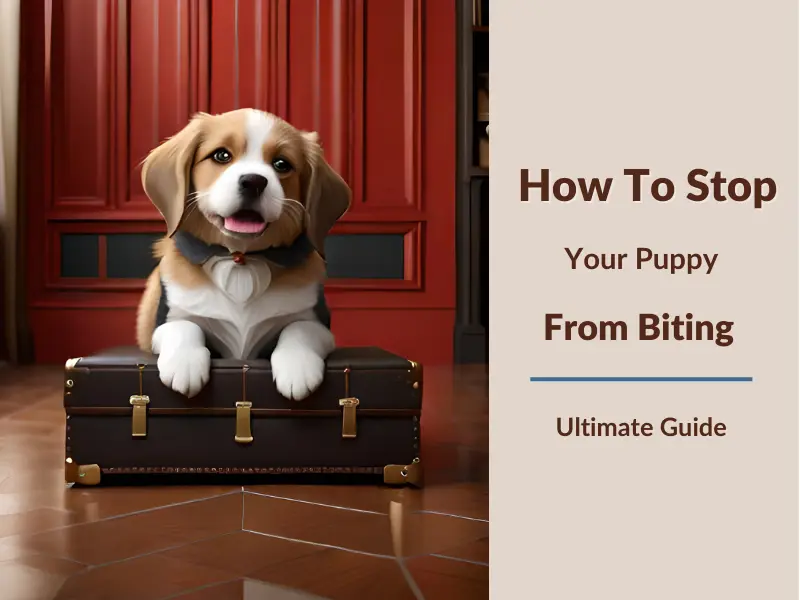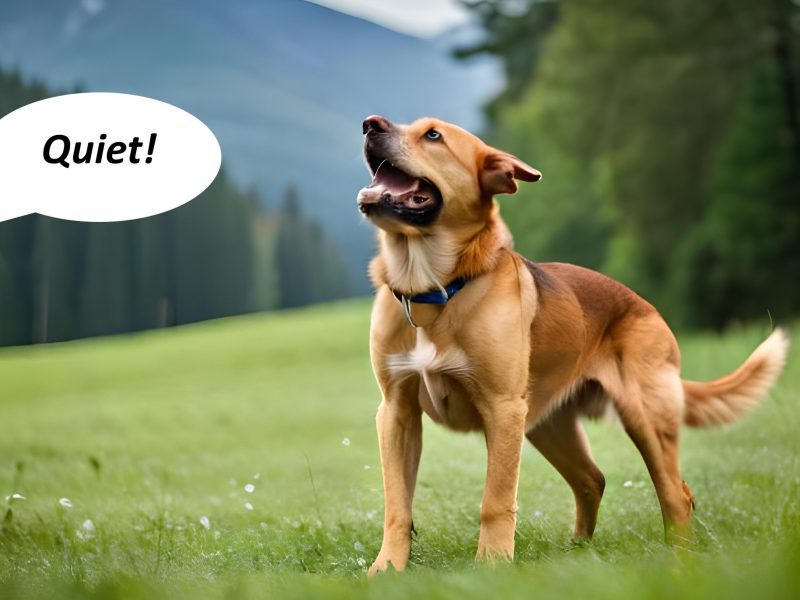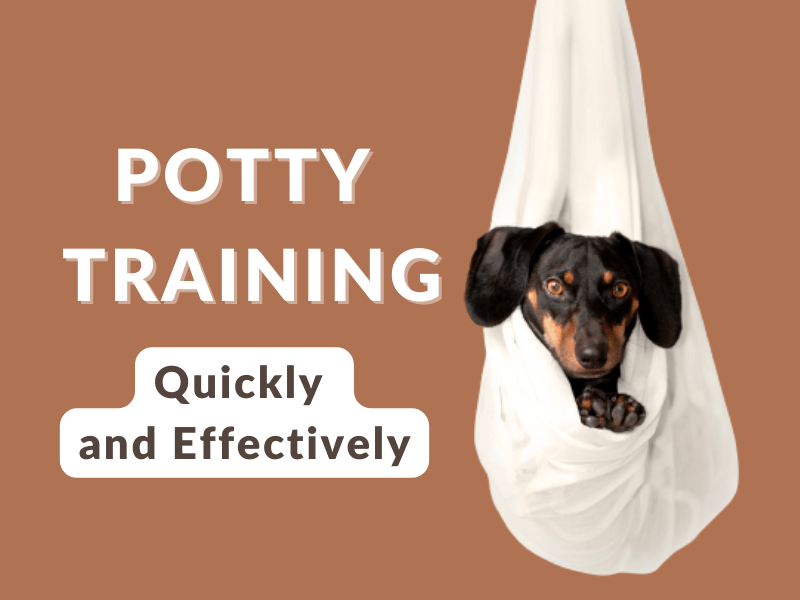When you bring a new puppy into your home, one of the most important things to teach them is how to stop biting. Puppies are naturally curious and full of energy, and biting is one of their primary ways of exploring and playing. As cute as it may be, it’s important to teach your puppy that biting is unacceptable behavior.
In this article, we’ll discuss how to get your puppy to stop biting. We’ll cover the reasons why puppies bite, how to take appropriate action, how to redirect their energy, and the best ways to train your puppy not to bite.
Reasons Why Puppies Bite
Puppies bite for a variety of reasons, but the most common reasons are teething, play, and excitement. Teething is a natural process for puppies, and they’ll often use their mouths to explore the world around them. This can be an issue if they start to bite on their hands, feet, and furniture.
Play is another common reason why puppies bite. Puppies are still learning how to interact with other animals and humans and biting can be an instinctive way for them to play. Lastly, puppies may bite out of excitement. When puppies get overly excited, they may start to bite and nip at people and objects. This is usually done in an effort to get attention or to get someone to play with them.
It’s important to teach puppies proper behavior so they don’t continue to bite as they get older. Teaching them the “no bite” command and providing them with appropriate chew toys can help prevent them from biting in the future.
Determine the Reason for Puppy Biting
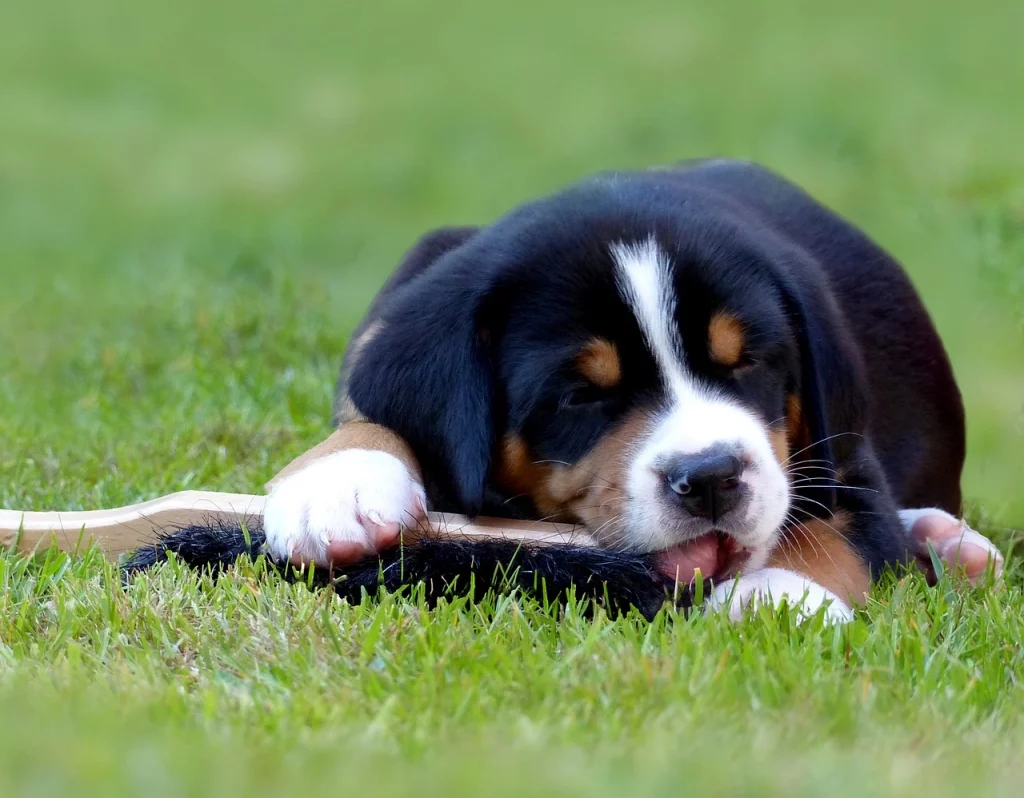
Determining the reason for the biting can help you to address the problem. Puppy biting can be caused by a variety of factors, including teething, play, boredom, and lack of training. It is important to identify the cause of the biting in order to address it appropriately. Identifying the cause of the biting is the first step in addressing this common puppy behavior
1. Puppies explore the world with their mouths
Puppies are curious and adventurous little creatures that explore the world with their mouths. From the moment they are born, puppies are eager to explore their environment and gain knowledge of their surroundings. They use their mouths to investigate the world around them, tasting, licking, and chewing on objects to learn more about them. Puppies use their mouths to express their joy, excitement, and curiosity, as well as to show their displeasure and fear. Puppies also use their mouths to play and interact with their owners and other animals.
They also use their mouths to nip, bite, and chew on toys, as well as to lick and groom their owners and other animals. Puppies are amazing little creatures that use their mouths to explore the world around them and to communicate with those around them.
2. Puppies may bite out of fear or anxiety
Puppies may be biting from fear or anxiety. This behavior is most common in puppies who are not properly socialized or who are not used to being around people. Fear-biting is a natural reaction to something that the puppy perceives as a threat. The puppy may bite out of fear if it feels scared or threatened by a person or another animal. Anxiety biting is usually a reaction to a change in the puppy’s environment or to something that is unfamiliar or uncomfortable.
In both cases, the puppy may be trying to protect itself and is not trying to be aggressive. The best way to prevent fear or anxiety biting is to make sure the puppy is properly socialized and comfortable with its environment. This can be done by introducing the puppy to new people and animals in a positive and non-threatening manner. Additionally, it is important to give the puppy plenty of exercise and mental stimulation to help reduce stress and anxiety.
3. Puppies may bite out of boredom or lack of exercise
Boredom can set in quickly for a puppy. Without enough stimulation, they can become restless, anxious, and even aggressive. A lack of exercise can also lead to biting. Puppies need plenty of exercises to stay healthy and happy.
Taking them for regular walks, playing fetch, and providing interactive toys can help them get the physical and mental stimulation they need. If a puppy is biting out of boredom, owners should try to find ways to keep them entertained. Providing chew toys, interactive toys, and puzzles can help keep them occupied and give them an outlet to express their energy.
You should also make sure to give their puppy plenty of attention and love. Spending quality time with them will help them stay calm and allow them to bond with their owner. If a puppy is biting out of lack of exercise, owners should make sure they are getting enough physical activity. Taking them for regular walks, playing fetch, and providing interactive toys can help them get the exercise they need. With the right amount of stimulation, exercise, and attention, puppies can become happy and well-behaved.
Take Appropriate Action
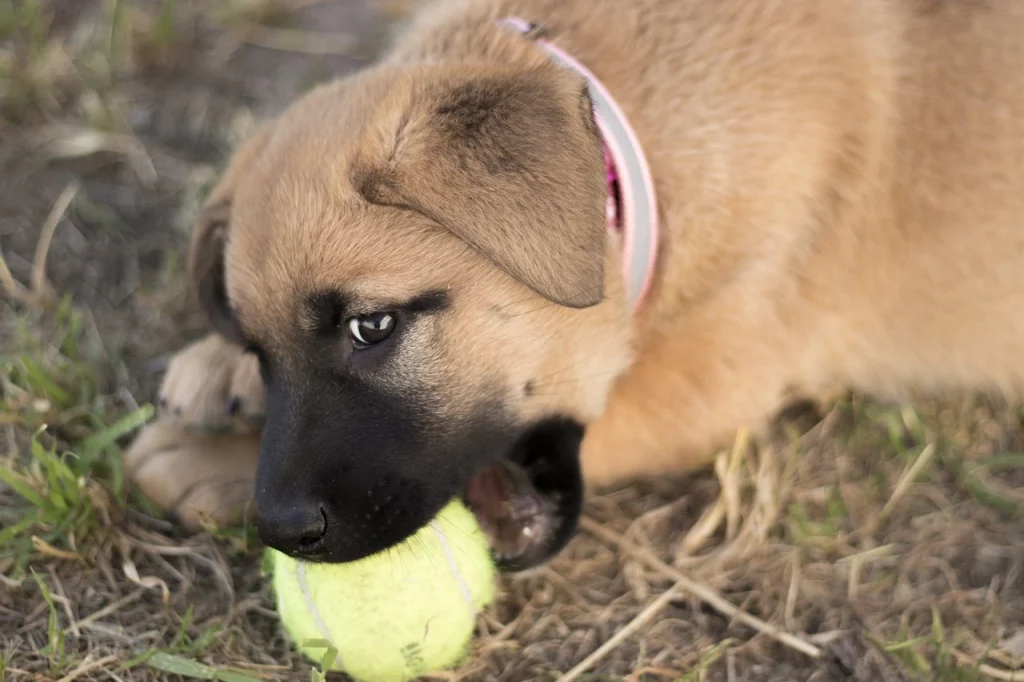
1. Provide plenty of chew toys
When it comes to stopping puppy biting, providing plenty of chew toys is a great place to start. Chew toys are a great way to help puppies learn appropriate chewing behavior and can help to redirect their energy away from biting. Make sure to provide a variety of chew toys that are appropriate for your puppy’s age and size. Ensure the chew toys are made of durable materials that are safe for puppies to chew on. Avoid toys with sharp edges, small parts, or stuffing that can be easily swallowed. Provide your puppy with chew toys that are designed to be durable and long-lasting. If your puppy enjoys playing with rope toys, make sure to supervise them and replace the toys when they become worn out.
Provide your puppy with plenty of opportunities to chew on appropriate items. If your puppy starts to chew on something they shouldn’t, provide them with an appropriate chew toy and praise them when they start using it. If they continue to chew on inappropriate items, provide them with a firm “No” and remove the item from their reach.
Finally, be sure to provide plenty of positive reinforcement when your puppy is chewing on appropriate items. Provide them with verbal praise, treats, or a favorite toy when they are chewing on appropriate items. This will help to reinforce the desired behavior and will make it more likely that they will continue to chew on appropriate items.
2. Give your puppy plenty of exercises
We know that Exercise helps to tire puppies out and gives them an outlet for their energy. When puppies are overstimulated or bored, they may bite out of frustration. Providing your puppy with plenty of exercises can help to reduce their biting behavior.
To start, take your puppy for a walk every day. This is a great way to get your puppy used to being on a leash and to help them burn off some energy. During the walk, you can also teach them basic commands such as “sit” and “stay”. This will help them to learn to control their impulses and focus on you.
You can also engage in interactive play with your puppy. Playtime is a great way to bond with your puppy and to help them learn how to interact with you. Try playing fetch or tug-of-war, or hide and seek. These activities will help to keep your puppy engaged and give them an outlet for their energy.
By providing your puppy with plenty of exercises and engaging in interactive play, you can help to reduce their biting behavior. With patience and consistency, you will stop your puppy from biting.
3. Avoid punishing your puppy for biting
Puppies bite for many reasons, such as to explore their environment, to relieve boredom, or to express their excitement. It is important to remember that punishing a puppy for biting is not the best way to discourage this behavior.
Punishment can make a puppy scared or anxious and can cause them to become defensive and fearful of people. Instead of punishing a puppy for biting, it is important to focus on teaching them bite inhibition. Bite inhibition is the process of teaching a puppy to be gentle when interacting with people and other animals. This can be done by providing a puppy with toys to chew on, teaching them commands such as “no bite”, and rewarding them with praise and treats when they exhibit gentle behavior.
4. Teach your puppy what is appropriate to bite
Teaching your puppy what is appropriate to bite is an important part of puppy training. It is important to be consistent in teaching your puppy what is acceptable to bite and what is not. Start by providing your puppy with chew toys and treats they can chew on while avoiding items they shouldn’t be chewing on.
Make sure to praise your puppy when they chew on the appropriate items, and redirect them when they start to chew on something they shouldn’t. Avoid using any physical punishment when your puppy is chewing on something they shouldn’t, as this can make the problem worse. Instead, use a firm “no” and immediately redirect them to something they can chew on.
If your puppy continues to chew on something they shouldn’t remove the item and replace it with one of their chew toys. Be sure to give them lots of positive reinforcement when they chew on the appropriate items. With consistent and positive reinforcement, your puppy will soon learn what is appropriate to bite and what is not.
Train Your Puppy to Stop Biting
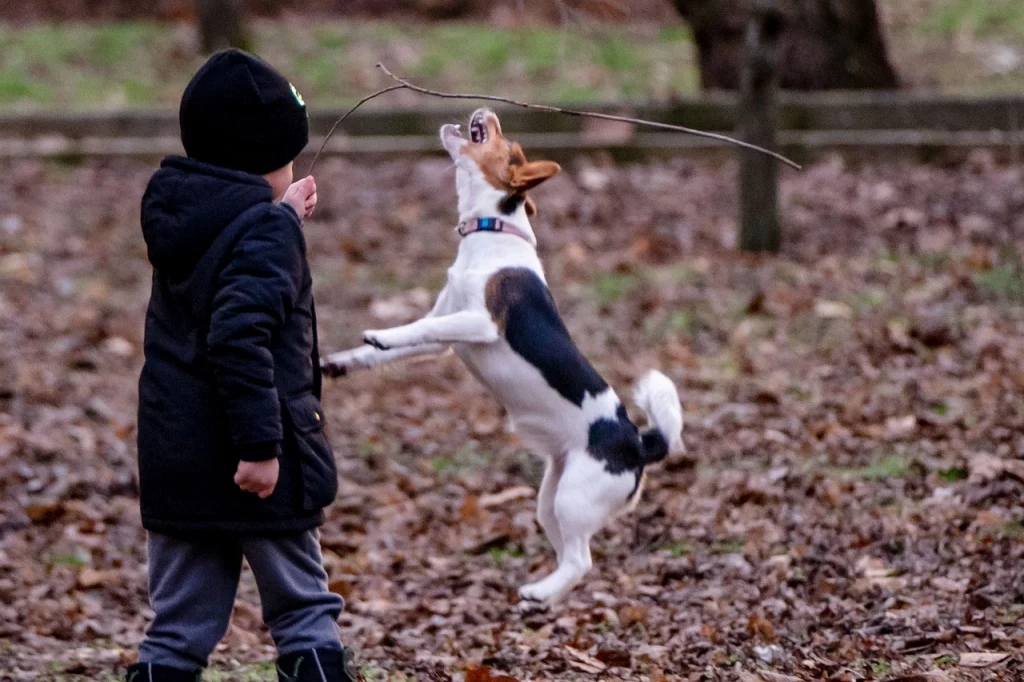
1. Use rewards-based training
Training your puppy not to bite can be a challenging but rewarding experience. By using rewards-based training, you can help your puppy learn to control their biting behavior. Rewards-based training involves rewarding your puppy with treats, praise, and affection when they demonstrate good behavior. This type of training helps to reinforce positive behaviors and discourage negative ones. When your puppy bites, you should immediately stop the behavior and redirect their attention to an appropriate activity.
When your puppy demonstrates good behavior, make sure to reward them with treats, praise, and affection. This will help to reinforce the behavior and encourage them to repeat it in the future.
2. Teach your puppy basic commands
Training your puppy not to bite is an important part of responsible pet ownership. Teaching basic commands is a great way to start. Start with the basics like “sit” and “stay”. Reward your puppy with treats and praise when they obey. This will help them understand that they are being rewarded for good behavior.
As your pup gets older, you can introduce more commands like “leave it” and “come”. These commands should be used in situations where your pup is tempted to bite, such as when a stranger walks by or when another pet is around.
Make sure to reward your pup with treats and praise every time they obey. you can train your pup not to bite and create a safe and loving environment for everyone in your family.
3. Teach your puppy to respond to “No” and “Stop”
It is also important to teach your puppy to respond to “No” and “Stop” as soon as possible, as this will help them understand the limits of acceptable behavior. When your puppy bites, immediately say “No” in a firm voice and remove your hand. Don’t pull away quickly, as this can encourage your puppy to bite harder. Instead, move your hand slowly and calmly away.
You can also say “Stop” in a firm voice and then offer your puppy a toy or chew to redirect their attention. If your puppy continues to bite, use a time-out method by walking away and ignoring your puppy for a few minutes. This will help them understand that biting is not acceptable behavior. Whenever your puppy is playing nicely, give them lots of praise and treats. This will help reinforce the behavior you want to see. And soon you can teach your puppy not to bite.
Seek Professional Help
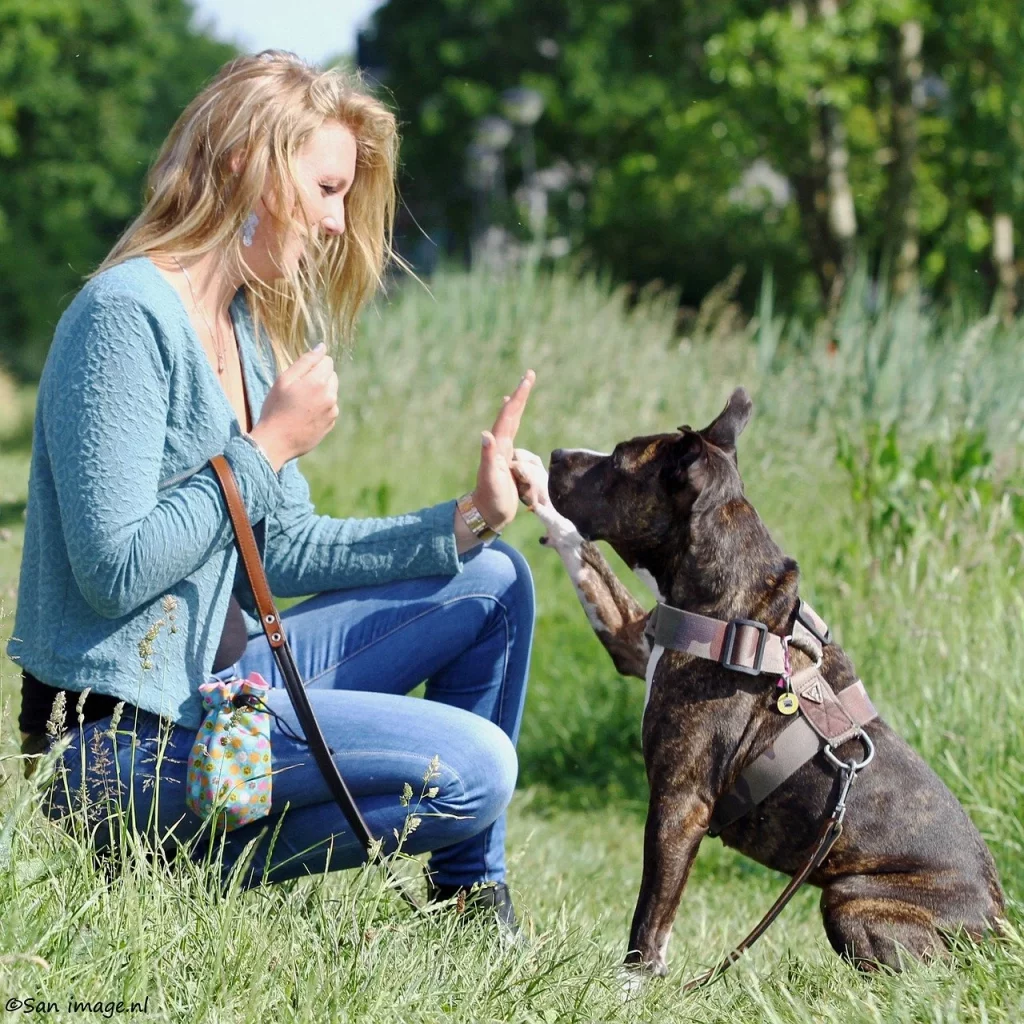
1. Consult a professional dog trainer
Training your puppy to stop biting can be a difficult but rewarding process. however, if you find that you are unable to effectively train your puppy not to bite, it is important to seek professional help.
Consulting a professional dog trainer is a good way to ensure that your puppy learns to stop biting and develops good manners. A professional trainer can provide you with the necessary guidance and tools to help your puppy learn to control its biting behavior.
The trainer can also help you identify any underlying causes of the biting, such as fear or anxiety, and provide advice on how to address these issues. Additionally, the trainer can provide guidance on how to reward your puppy for good behavior, and how to use positive reinforcement to discourage biting.
With the help of a professional trainer, you can be sure that your puppy will learn the appropriate behaviors and develop into a well-mannered pet.
2. Consider enrolling your puppy in a puppy class
Enrolling your puppy in a puppy class is a great way to train your pup to stop biting. A puppy class can provide your pup with a safe and secure environment to learn and practice proper behavior, as well as help you understand how to best discipline your pup. During the class, your pup will learn how to interact with humans and other puppies in a positive way, which can help prevent biting.
The class will also teach your pup the importance of good manners, such as not jumping on people or furniture, not barking excessively, and not biting. The class will also help you understand how to effectively communicate with your pup, which can help prevent biting.
Furthermore, the class will provide an opportunity for your pup to socialize with other puppies, which can help prevent your pup from feeling isolated and frustrated, which can lead to biting.
Enrolling your pup in a puppy class is a great way to help train your pup to stop biting and to ensure that your pup grows up to be a well-mannered and well-socialized adult.
3. Invest in a good book or online course on puppy training to stop biting
Investing in a good book or online course on puppy training is also a great way to train your puppy to stop biting. It can be difficult to know where to start when it comes to training a puppy, and having an expert guide can make the process much easier.
Not only do these courses provide detailed information on how to train a puppy not to bite, but they also provide tips and tricks on how to socialize your puppy and how to effectively communicate with them.
Additionally, these courses can provide valuable insight into the psychology of puppies and how their behavior is shaped by their environment. By understanding these concepts, you can better understand how to effectively train your puppy to stop biting.
Furthermore, the courses provide step-by-step instructions on how to train your puppy, including how to use positive reinforcement and reward-based methods, as well as how to effectively deal with any misbehavior.
Finally, Investing in a good book or online course on puppy training is an invaluable tool for any puppy owner, and can make the process of training your puppy not to bite much easier.
Conclusion
Puppy biting can be a frustrating problem for many pet owners, but it is important to remember that biting is a normal part of puppy development. By following the steps by steps above, you can help your pup learn to stop biting and learn to engage in more appropriate behaviors.
it is important to provide consistent encouragement to keep up with the training of a puppy not to bite. By providing positive reinforcement, puppies can learn to stop biting and become well-behaved family members. It is also important to be consistent and patient when training a puppy not to bite, as this will ensure that the puppy learns the desired behavior.
Recommended Reading
- How To Training A Dog To Pee Outside Step By Step
- How to Stop a Dog From Pulling on the Leash
- Can Dog Eat Avocado? Here’s the Answer

